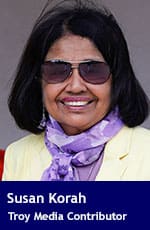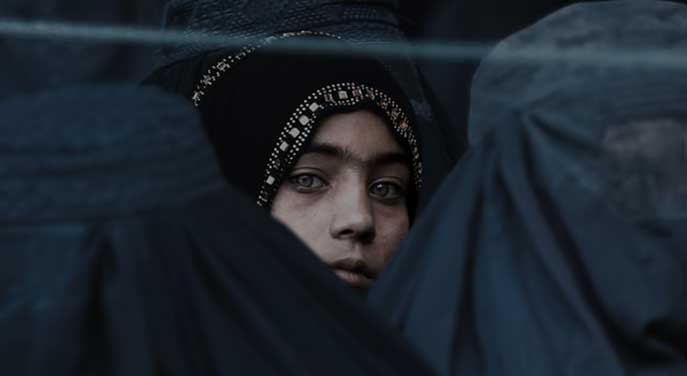 Afghanistan’s religious minorities are facing nothing less than a genocide but the Canadian government has yet to make a firm commitment to protect some of the most vulnerable among them, say Canadian human rights activists.
Afghanistan’s religious minorities are facing nothing less than a genocide but the Canadian government has yet to make a firm commitment to protect some of the most vulnerable among them, say Canadian human rights activists.
Hazaras and Christians – two of these minorities – have been cornered into a desperate situation ever since the fall of Kabul to Taliban extremists a week ago. The exit door via the airport is set to close on or shortly after August 31, leaving a sense of impending doom as they are not even visible on Canada’s persecuted minority list.
Canada’s promise to resettle 20,000 of the most vulnerable Afghans is proving to be a cruel illusion for Hazaras, Ali Mirzad said in an interview.
Mirzad, the Ottawa-based senior advisor to the Canadian Hazara Humanitarian Services (CHHS) and a Hazara himself, said the Afghan debacle is personally affecting the 20,000 to 30,000 Canadian Hazaras who are frantic about their families and friends in the home country.
“We are profoundly disappointed and deeply concerned,” Mirzad said.
As a Shia Muslim minority, Hazaras have been labelled “infidels” and are targeted for destruction by the Sunni Taliban, he said.
Trapped in a similar situation, Christians are facing the same fate, says Majed El Shafie, founder and president of One Free World International (OFWI).
OFWI is the Toronto-based NGO that advocates for persecuted minorities around the world, and is known for its daring rescue missions of victims of human rights violations.
 Neither Hazaras nor Christians were specifically mentioned in the list of “persecuted minorities” that three federal cabinet ministers presented at a media conference last Friday.
Neither Hazaras nor Christians were specifically mentioned in the list of “persecuted minorities” that three federal cabinet ministers presented at a media conference last Friday.
At the media conference, Immigration Minister Marco Mendicino, Minister of National Defence Harjit Sajjan and Minister for Women and Gender Equality Maryam Monsef (an Iranian-born Afghan Canadian) announced that Afghan refugees that Canada intends to resettle will include women leaders, human rights activists, journalists, persecuted minorities, and members of the LGBT community, as well as family members of former interpreters who previously fled to Canada.
“Canada is doing too little, too late,” El Shafie said. “This is another foreign policy failure. Canada did not succeed fully in protecting Yazidis (a faith minority from Northern Iraq targeted for extermination by ISIS), and now it’s failing the minorities of Afghanistan.”
Afghan’s Christian population, which has grown to about 100,000 in the 15 years since El Shafie’s first visit to the country, are terrified at the prospect of yet another reign of terror under the Taliban, he said. The future threatens more beheadings, kidnappings, sexual enslavement and other calamities for this community, which has had to go underground because even in better times conversions from Islam were illegal in Afghanistan.
“Taliban spokesmen are putting on a nice face right now,” El Shafie continued. “But there are many unknowns about how they would ‘govern.’ One thing is certain: a humanitarian catastrophe is in the making.”
OWFI’s has stepped up its efforts in Afghanistan, even though contact with the head office in Toronto is intermittently cut due to Internet connection problems.
“My team is focusing on two things,” El Shafie said. “We are beginning to plan the logistics of distributing food and medical supplies for displaced people. OWFI did this successfully in Iraq and Syria when ISIS controlled large swaths of territory.”
He added they are raising funds to purchase supplies and are coordinating with local partners who have the capacity to distribute these essentials locally.
“We also need to plan the logistics of getting the supplies there,” he said.
To illustrate the complications of such operations, El Shafie described past operations in Iraq and Syria. “Our medical supplies for people in these countries came from Europe. They were delivered into Kurdish-controlled areas, then distributed to refugee camps. Food was purchased locally to help boost the local economy.”
He said that OWFI is also planning for the day when the Americans depart and Canadian evacuation efforts – not to mention media attention to the ongoing genocide – come to an end.
“We are trying to create a network to get some people out through land borders,” he said, adding he could not give details of this plan for security reasons.
El Shafie emphasized fundraising is key to all of this, and that the work of OWFI is wholly supported through the voluntary donations of its friends, members, and supporters.
In the meantime, Canadian Hazara activists like Ali Mirzad are pleading with the Canadian government for more meaningful action rather than political grandstanding during the current federal election campaign.
Mirzad said it is inexplicable that Hazaras are not on the Canadian government’s priority list.
“There is no doubt we are a persecuted minority in Afghanistan,” he said. “This issue was first raised in the Canadian Parliament in 2016 by Senator Mobina Jaffer, then in the House of Commons in 2018 by MP Garnett Genuis, and most recently, on June 22, 2021, we presented evidence to the House of Commons sub-committee on human rights.”
He emphasized one of the most distressing facts of the current situation is that Hazaras are brutally beaten by Kabul airport security guards when they try to enter through the gates, and so have no chance of being evacuated before the deadline set by the US.
Mirzad said he was in touch with his own family members – some elderly and with health problems – who were denied access to the airport.
“I don’t want to focus on my family alone,” he said in a voice trembling with emotion, “We are only one Hazara family. There are thousands of others who may never get out, and this is deeply troubling.”
Ironically, the world’s latest genocide is unfolding exactly two years after the UN declared August 22 to be International Day Commemorating the Victims of Violence Based on Faith or Belief.
Will Canada’s leaders put election campaigning on hold just long enough to deal with this humanitarian crisis?
Susan Korah is an Ottawa-based journalist.
Susan is a Troy Media Thought Leader. For interview requests, click here.
This commentary was submitted by Convivium, Cardus‘s online magazine. Cardus is a leading think tank and registered charity. Convivium is a Troy Media Editorial Content Provider Partner.
Convivium’s work depends upon the partnership of generous donors who believe in our mission to create a conversation that enhances the role of faith in our common life.
The views, opinions and positions expressed by columnists and contributors are the authors’ alone. They do not inherently or expressly reflect the views, opinions and/or positions of our publication.
© Troy Media
Troy Media is an editorial content provider to media outlets and its own hosted community news outlets across Canada.


